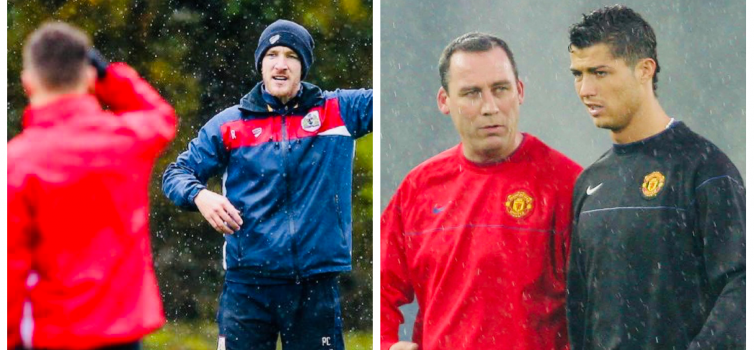How football is focusing on the individual

Rhys Carr was Development Coach for Bristol City, while Rene Meulensteen did a similar job for Man Utd
Written by Simon Austin — July 10, 2019
FOOTBALL will always be a team sport, but clubs are increasingly realising the need to focus on the individual.
This summer, the role of Head of Player Development has been in vogue, with more and more clubs creating the role. Southampton have just appointed one (David Hughes), as have Blackburn Rovers (Damien Johnson) and Fulham (Liam Rosenior).
Huddersfield are currently recruiting for the position and Bristol City actually had one last season, with Rhys Carr moving from Head of Fitness and Conditioning to Player Development Coach.
Speaking at the Soccer Science Conference last month, which he himself organised, Carr said: “I think role of Individual Development Coach is going to come into the game more and more. There is a business case for having someone in place to look after the development of individual players.
“Because we are generally playing Saturday-Tuesday, the training can sometimes be a little bit general. With an individual coach, you work out individual development plans and work out what each player needs. Then you see if they are hitting their targets, which will be different for everyone, and put interventions in place if not.
“You recreate the scenarios that players are going to get in games, which they might not get in general training.”
Before taking on the role, Carr went to visit Rene Meulensteen, who was performing a similar role at Manchester United 12 years ago as Technical Development Coach. This involved working one-on-one with players to improve their techniques - even when they were as stellar and experienced as Paul Scholes and Ryan Giggs.
“I went up to Manchester to talk to Rene about his work,” Carr remembered. “He emphasised the importance of giving players a purpose and challenging them. The more you expose players to certain situations, the better they get. What isn’t trained is forgotten and vice versa.”
In an interview with TGG in 2017, Meulensteen said: “I always told the players, ‘we’ve got something we can add to your game’. Add is positive; add means more; add means better. Not once did a player come to me and say ‘what a lot of bullshit that is’.
“You don’t try to teach Paul Scholes how to hit a pinpoint 60-yarder, because he can do that better than anyone else in the world. But we worked on shifting the angles when he was in possession, so he could turn away from trouble to open up options. You pretend to go one way, turn out and are still on your good foot - and boom.”
The modern Player Development role is concerned about more than technical skills though, with coaches taking a '360-degree approach' looking at the tactical, technical, physical and psychological elements of a player's game.
Huddersfield have just closed applications for a new Player Development Coach and are looking for someone “to nurture and maximise talent and embed holistic development processes”.
Their Academy Manager, Leigh Bromby, spoke at the TGG Youth Development Conference last month and on our subsequent podcast, which you can listen to above.
“There’s a difference between someone who manages and develops a team and someone who does it with individuals," Bromby said.
"Olympic sports have had this role for a while - they call it pathway manager - but football hasn’t.”
Bromby used the example of 18-year-old attacking midfielder Matty Daly, who made the step from Academy to first-team squad at the end of last season, to show why the role is so important.
“Matty is a high-value player for us and we want to ensure he keeps developing, even though he’s made that step up to first-team football. Traditionally, development can sometimes stall when a player makes the move to the first team.
"He might not be getting that many games and he's part of the general training. We want to take a 360-degree overview with someone like Matty, focusing on all the aspects of his development.
“This is a new role for us but a really important one and we want someone with a passion for developing individuals, who is very forward thinking and can leave a legacy for the club.”




-1.png)





